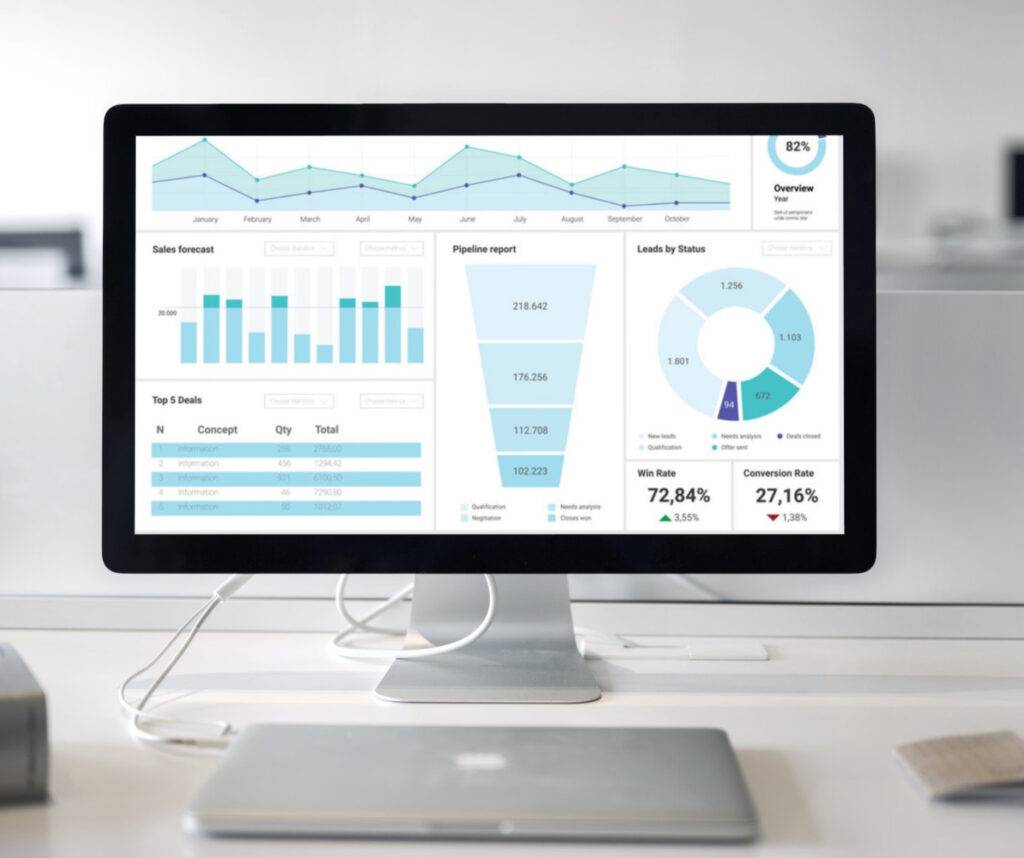Data Storytelling: Unleashing the Power of Visual Narratives
Introduction
We understand the significance of data storytelling in today’s digital landscape. As businesses strive to engage and captivate their audiences, the ability to effectively communicate complex data through compelling narratives has become a key differentiator. In this article, we delve into the world of data storytelling and unveil the strategies that can help businesses unlock the full potential of their data.
Why Data Storytelling Matters
In an era where information overload is rampant, data storytelling acts as a beacon of clarity. It allows organizations to transform raw data into captivating stories, enabling their target audience to grasp and internalize the underlying insights effortlessly. Data, when presented in a narrative format, becomes relatable, memorable, and actionable.
The Elements of a Compelling Data Story
To craft a data story that resonates with your audience, it is essential to consider the following elements:
- Clear Objectives and Audience Understanding
Before embarking on the data storytelling journey, it is crucial to define your objectives and identify your target audience. By understanding the specific goals you aim to achieve and the characteristics of your audience, you can tailor your narrative to address their needs and pain points effectively.
- Choosing the Right Data
Selecting the most relevant data to support your story is fundamental. Ensure that the data you choose is accurate, reliable, and aligns with the key insights you wish to convey. Additionally, consider the context surrounding the data and present it in a visually appealing manner.
- Compelling Visualizations
Visuals play a pivotal role in data storytelling. They help in transforming complex information into digestible and visually engaging content. Utilize charts, graphs, infographics, and other data visualization techniques to reinforce your narrative and enhance comprehension.

- Narrative Structure
A well-structured narrative serves as the backbone of your data story. Consider incorporating the following components:
i. Introduction
Set the stage by introducing the topic, its significance, and the questions you aim to address through data analysis.
ii. Rising Action
Present the data points that build tension and create intrigue, gradually leading to the climax.
iii. Climax
Reveal the key insights and pivotal findings derived from the data analysis, offering a significant turning point in the narrative.
iv. Falling Action
Provide additional context, explore the implications of the insights, and propose actionable recommendations.
v. Conclusion
Summarize the key takeaways, emphasizing the impact of the insights and leaving a lasting impression on the audience.
- Emotional Connection
To truly captivate your audience, it is vital to establish an emotional connection. Leverage storytelling techniques such as relatable anecdotes, personal experiences, or case studies that resonate with your audience’s aspirations, challenges, or desires.
- Iterative Improvement
Data storytelling is an iterative process. Continuously seek feedback, measure the impact of your narratives, and refine your approach based on the insights gained. This iterative improvement enables you to continually enhance the effectiveness of your data stories.
Best Practices for Data Storytelling
To ensure your data storytelling efforts yield optimal results, consider the following best practices:
- Simplify Complex Concepts
Break down complex data and concepts into easily understandable narratives. Avoid using technical jargon or overwhelming the audience with unnecessary details. Focus on delivering a clear and concise story that leaves a lasting impression.
- Visual Consistency
Maintain visual consistency throughout your data story to facilitate comprehension and reinforce your brand identity. Use consistent color schemes, fonts, and design elements to create a cohesive and visually appealing narrative.
- Interactive Elements
Engage your audience by incorporating interactive elements within your data story. Interactive charts, sliders, or quizzes can elevate the user experience, encouraging active participation and fostering a deeper understanding of the data.
- Mobile-Friendly Design
As mobile usage continues to rise, ensure that your data stories are optimized for mobile devices. Responsive design and intuitive navigation are crucial to guarantee a seamless experience across various screen sizes.
- Search Engine Optimization (SEO) for Data Stories
To outrank other websites and increase your data story’s visibility, implement SEO best practices. Optimize your headlines, meta descriptions, and alt tags with relevant keywords. Additionally, incorporate internal and external links to reputable sources to enhance credibility.
Conclusion
In an increasingly data-driven world, the ability to weave captivating stories from complex datasets has become indispensable. By embracing the art of data storytelling, businesses can effectively communicate their insights, inspire action, and gain a competitive edge. Remember to define clear objectives, choose the right data, create compelling visualizations, and structure your narrative for maximum impact. By implementing best practices and continuously refining your approach, you can create data stories that not only outrank other websites but also resonate deeply with your audience, driving meaningful results.
*Disclaimer: This article is for informational purposes only and does not constitute professional advice.







